CHINA — Milking the goats at Fredrikson Farm begins at about 4 a.m. and takes maybe three hours. But at least Ed and Dianna Fredrikson get to catch the sunrise most mornings.
“Who’s going to do it but us,” Dianna Fredrikson said with a laugh.
Their family farm at 60 Danforth Road in China, after all, only has three other employees.

It might be small in numbers, but the team has built a successful dairy operation that since 2011 has sold chèvre, or goat cheese, to grocers in Maine and down the East Coast. Hannaford supermarket is Fredrikson Farm’s biggest seller, and in the early days of the farm’s business, its artisanal cheeses were at 25 Hannaford stores, with the Fredriksons and their workers delivering their products to stores around the state and to independent consumers.
The farm’s products are now at many more Hannaford stores, and its cheeses also are also carried by Market Basket and other grocers.
Fredrikson Farm’s annual cheese production is expected to exceed 30,000 pounds next year, the most in its history.
With a busy production schedule, Ed Fredrikson, 61, typically does the cheesemaking and can spend up to 50 hours each week in the cheese room.
Dianna Fredrikson, 58, crunches the numbers at their home office and packages orders. She left her banking job in May to work full time alongside her husband.
The couple enjoy working together, and key for them is efficiency, which they have built into their business model.

Dianna Fredrikson holds a container of spreadable goat cheese last Wednesday while filling an order at Fredrikson Farm at 60 Danforth Road in China. Rich Abrahamson/Morning Sentinel
“We really focus on the production side,” Ed Fredrikson said. “To get the production efficient, we made some investments in it. Therefore, we don’t have to have as many employees. That’s what has enabled us to not have to reinvest and to make a profit.”
The couple try to count the hours it takes to perform each task in their effort to find areas of improvement. As a result, they found their batch pasteurizer, which holds and heats freshly produced milk, was not working as efficiently as it should. They have invested in a larger one.
The Fredriksons are often looking for ways to improve operations as they cycle through each production season, which includes goat breeding that begins in September, the birth of kids starting in late February and milk production that kicks off in the spring. The couple work to stockpile products through the last quarter of the year so they have enough to at least get them through February.
In March, the farm saw the birth of 139 kids. A herd of more than 100 is generally kept. Some are sold.
The farm noticed a spike in popularity after being featured on the Magnolia Network show “The Lost Kitchen,” based on the acclaimed restaurant of the same name in the Waldo County town of Freedom. The restaurant uses the farm’s cheeses.
“That definitely gained us some attention for sure,” Dianna Fredrikson said. “It’s settled down now, but it was a big spike initially. We were watching the episodes as orders were coming in. It was crazy.”
The couple are not looking — for now — to scale up their operation, especially if it comes at the cost of product quality. The farm has various systems in place to protect the pasteurization process, such as an intricate piping system that runs from the milking room to the packaging room.
Unlike neighboring states, Maine does not require pasteurization of dairy products. Because the Fredriksons also sell their products out of state, however, they pasteurize all of their cheeses. In fact, pasteurization is one of their main selling points.

Dianna Fredrikson holds a wheel of goat cheese last Wednesday in the aging room at Fredrikson Farm at 60 Danforth Road in China. The wheels typically weigh 10 to 12 pounds after the aging process. Rich Abrahamson/Morning Sentinel
The Fredriksons pasteurize under conditions where the temperature is gradually increased and held for 30 minutes. The couple said the slow process allows the milk fat to produce a higher quality cheese, contrary to larger production plants that use high pressure and temperatures to produce the most volume in less time.
“I feel like we’ve done a great job at striking a balance to maintain the detail of our artisan farmstead farm and be able to sell enough product in order to be financially viable,” Ed Fredrikson said. “With a small farm, that’s tricky.”
Hannaford began carrying the farm’s cheeses in 2016. In the beginning of the partnership, the Fredriksons delivered to selected stores. Today, Fredrikson Farm’s cheeses are at more than 100 Hannaford stores in Maine, New Hampshire, Massachusetts, New York and Vermont. Fortunately, the couple no longer must deliver their products to several Hannaford store locations. Instead, they deliver to Hannaford’s distribution center in South Portland.
“They’ve evolved in their production and capabilities,” said Nate Sprague, Hannaford’s deli category manager.
Sprague manages the supermarket’s specialty cheeses, meats and charcuteries, among other items.
“We’ve met with them on several occasions and given them advice, offered them ways they can improve — whether it be their packaging or their distribution,” Sprague said.
The Fredriksons are working with the Maine Cheese Guild, a nonprofit group that operates out of Sidney, to give their products greater exposure, including by participating in the Maine Cheese Festival in Pittsfield in September.
The guild serves as a resource for farmers, providing them support, mentoring and even assistance in obtaining grants to buy equipment or for other needs.
“This group identifies with each other very strongly,” says Ron Dyer, the guild’s executive director. “If somebody has a problem making a cheese, they can call a neighboring cheesemaker that they are comfortable with and get advice. It’s pretty open communication because they don’t feel like competitors all the time. It’s kind of neat. It’s more like artists.”
With annual cheese production at Fredrikson Farm expected to increase to more than 30,000 pounds in the coming months, after producing about 5,000 pounds just five or six years ago, the future remains bright for the farm. For Ed and Dianna Fredrikson, however, it is often more about a personal perspective than a professional one, including Dianna’s decision to leave banking, which the couple call a milestone.
“Working it together,” she said, “was ultimately our goal.”
Copy the Story LinkSend questions/comments to the editors.

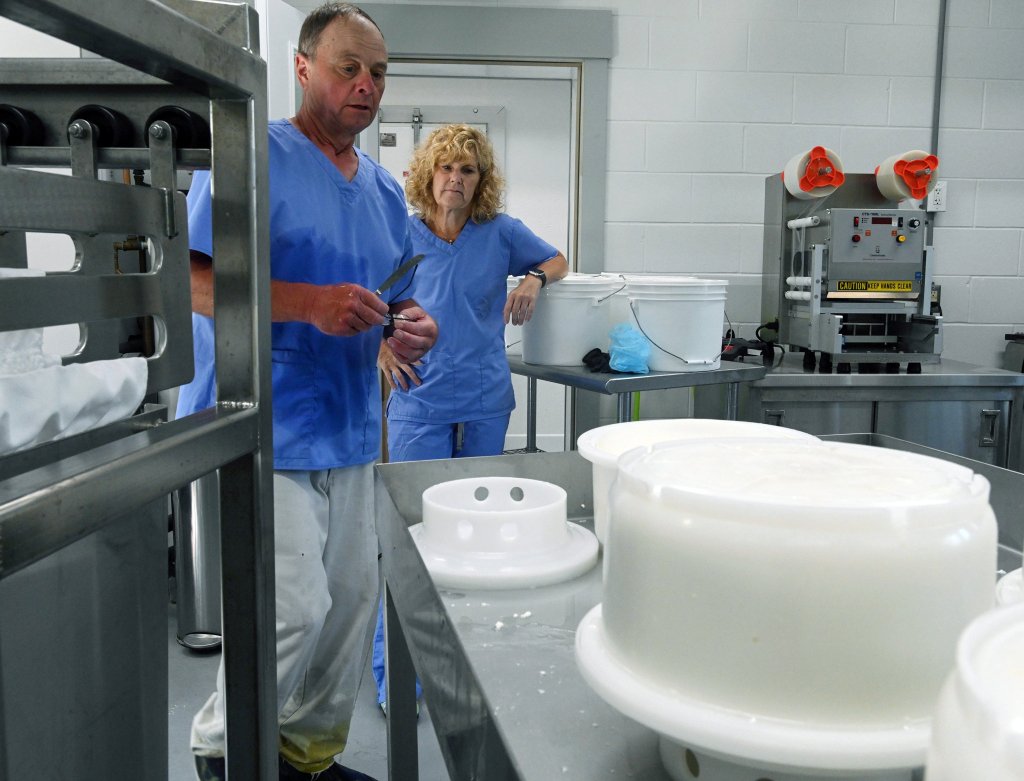
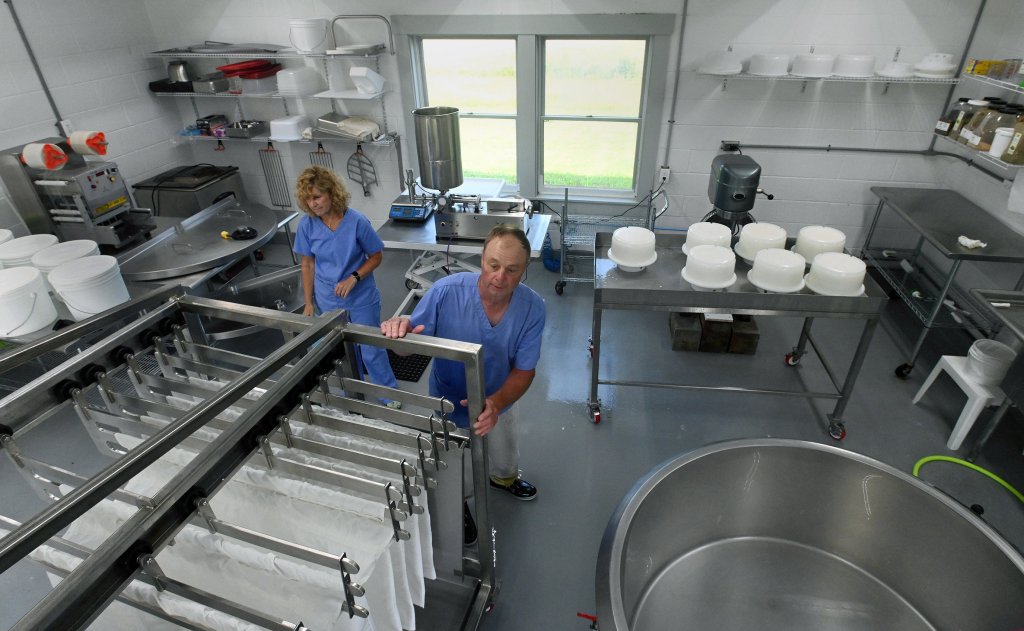
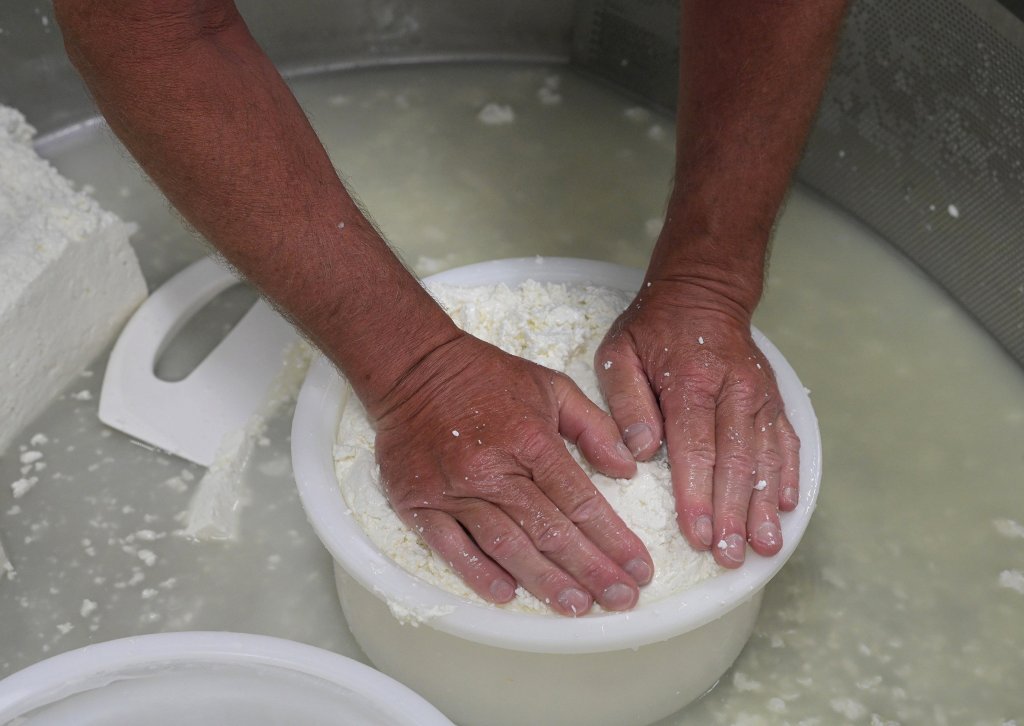
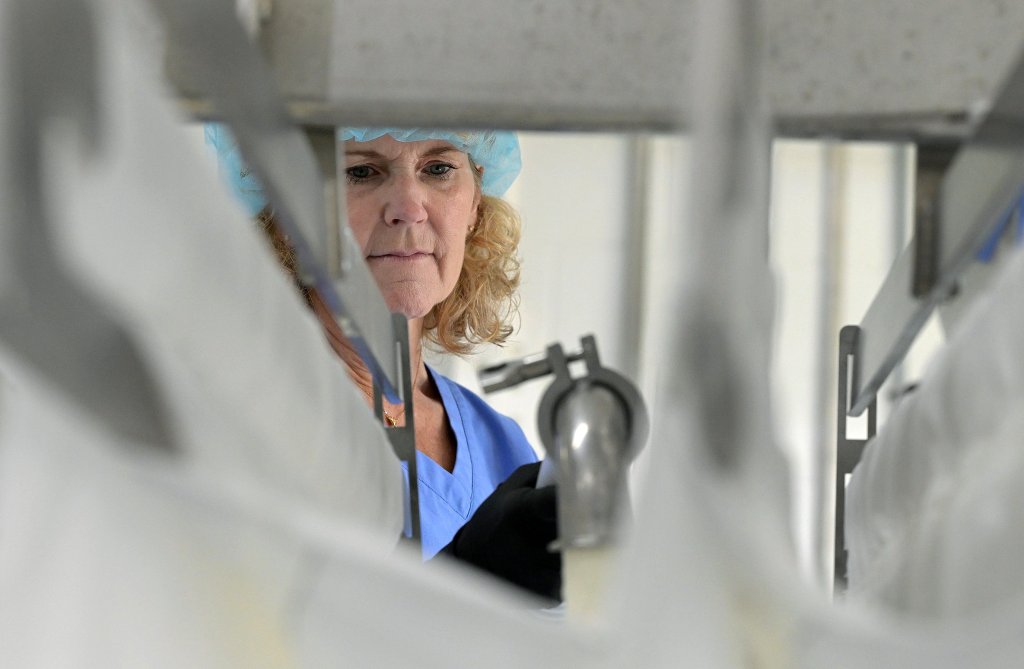
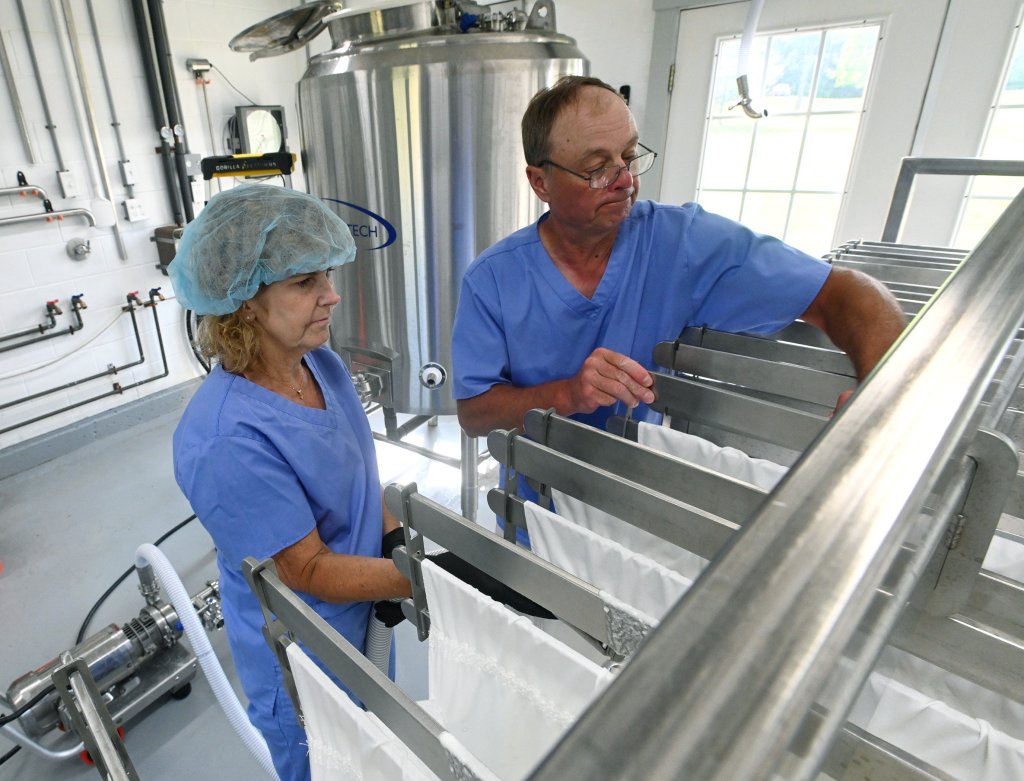
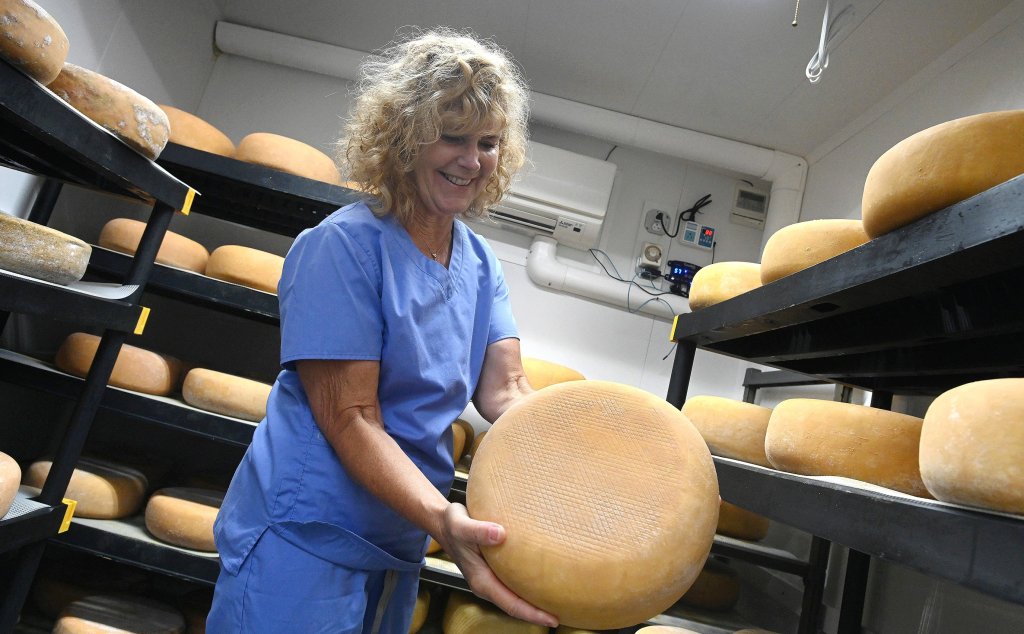
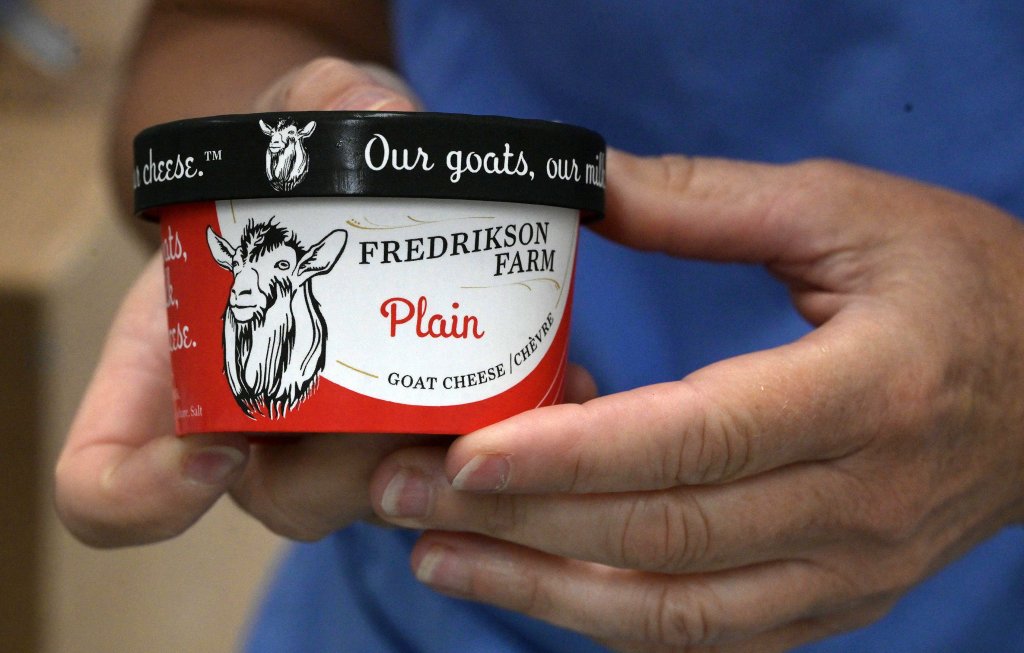
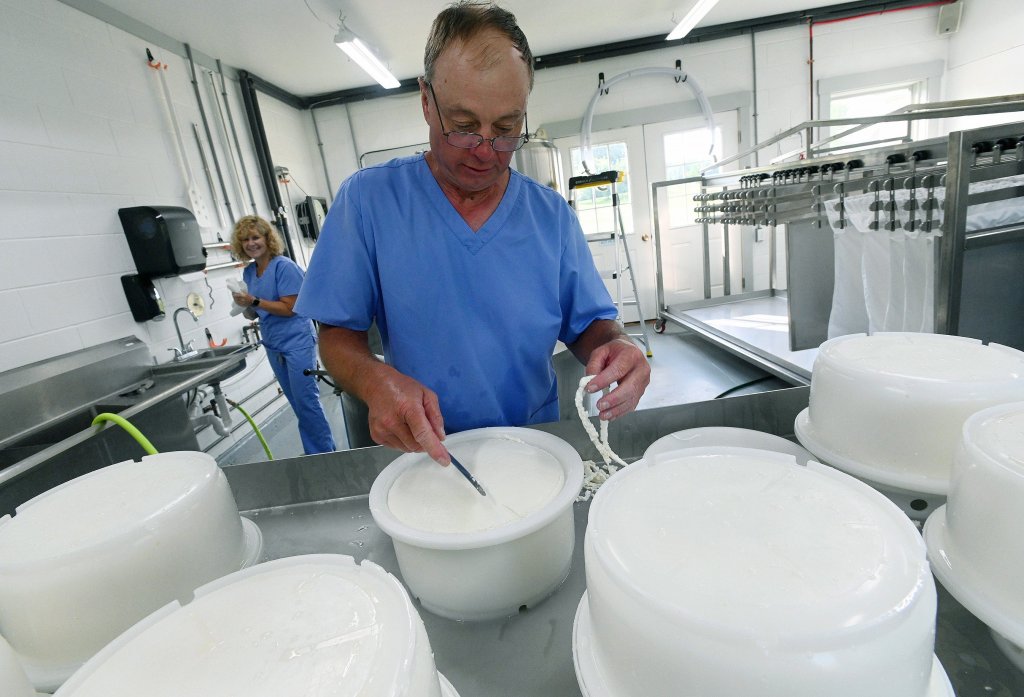
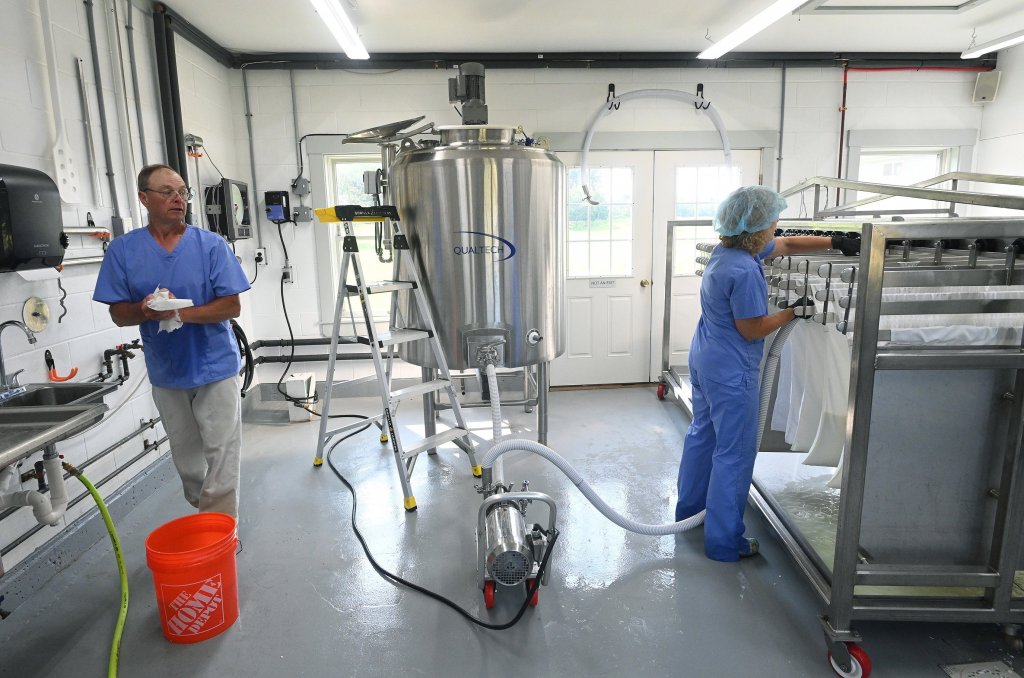
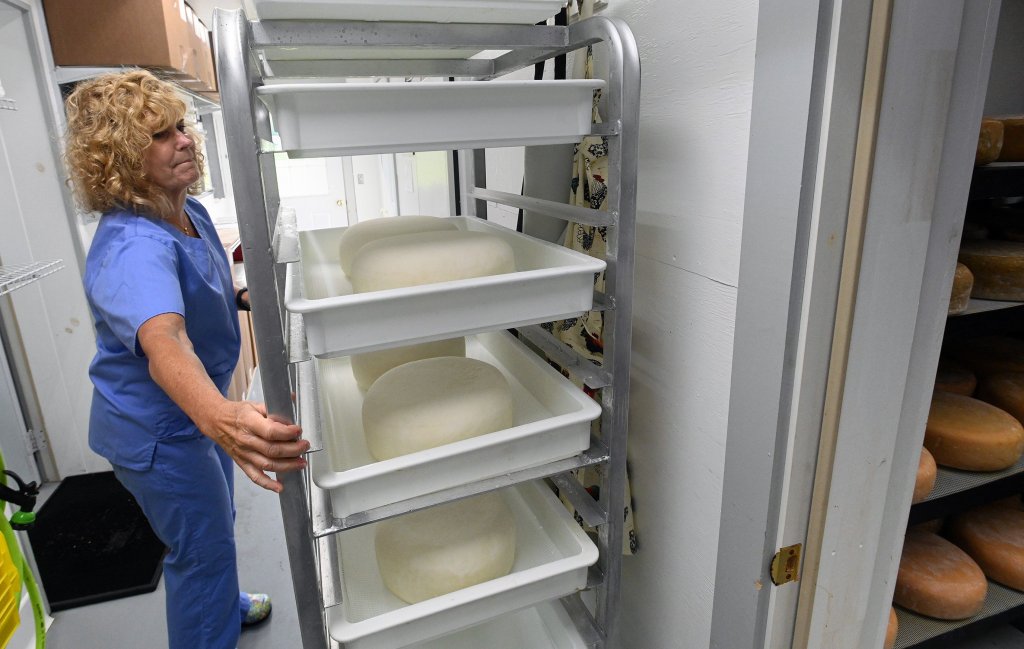

Success. Please wait for the page to reload. If the page does not reload within 5 seconds, please refresh the page.
Enter your email and password to access comments.
Hi, to comment on stories you must . This profile is in addition to your subscription and website login.
Already have a commenting profile? .
Invalid username/password.
Please check your email to confirm and complete your registration.
Only subscribers are eligible to post comments. Please subscribe or login first for digital access. Here’s why.
Use the form below to reset your password. When you've submitted your account email, we will send an email with a reset code.